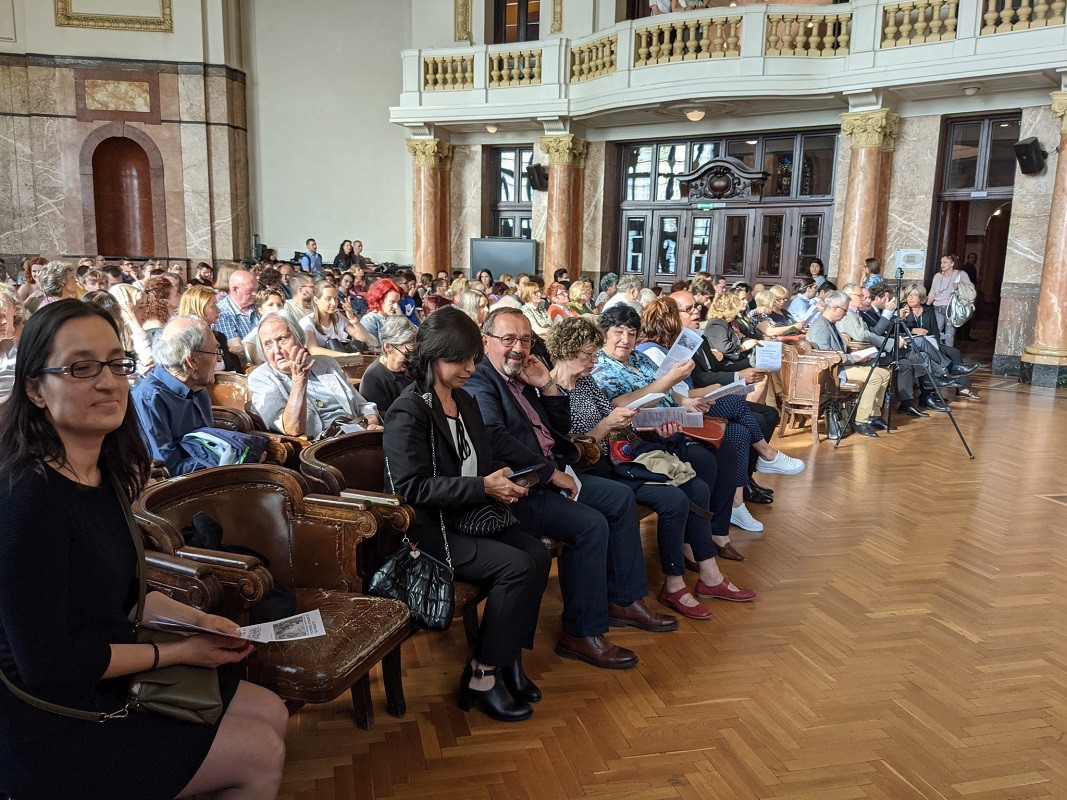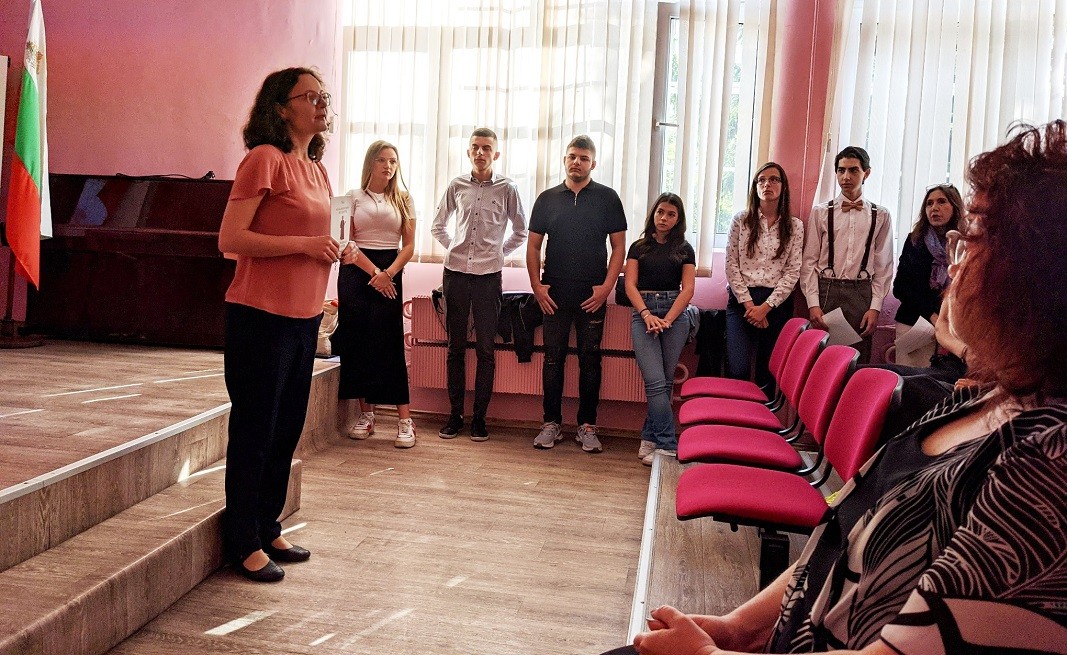Italian language continues to enjoy great popularity in Bulgaria. Many young Bulgarians love studying the language of Boccaccio and Dante Alighieri and enjoy Italian music and art.
In Bulgaria, Italian language is taught in four schools in Sofia, as well as in St. Kliment Ohridski University and New Bulgarian University. Italian language courses are organized by the Italian Cultural Institute in Bulgaria, as well as by many private schools.
While learning Italian pupils and university students also learn a lot about architecture, art, design, fashion, science and innovation. The main reason for this are the great achievements of Italy, says Radeya Gesheva, assistant professor in Italian Studies, part of the Romance Studies Department at Sofia University "St. Kliment Ohridski”. At the end of May, the 80th anniversary of Italian Studies in the university was marked with a solemn celebration:

"It is a great pleasure for us to promote the Italian language; this is our mission," Radeya Gesheva says. “We enjoy an incredible cooperation with the Italian Cultural Institute in Sofia and the Embassy of the Republic of Italy in Bulgaria. This is a bridge between cultures, through which we discover how close Bulgarian and Italian people are. We are close in our ways of interaction, as well as in terms of culture and our perception of art in general. I personally have many Italian friends who live in Bulgaria, as well as those who often come to visit our country. They are greatly impressed by Bulgarian culture, traditions and history. For them, everything is new because our country had long remained out of the attention of Italians as a tourist destination.”

According to Radeya Gesheva, the biggest similarity between Bulgarians and Italians is that they invest passion and emotion in everything they do.
"Lecturers and teachers strive to pass the attitude towards language and culture to our students. Teaching is a great responsibility and Italian Studies have a long tradition in Bulgaria, as well as continuity and connection between teachers and students. I have been teaching for 10 years and now many of my professors are also my colleagues. In addition to the love for the Italian language, they have given me their example of high professionalism and desire for improvement. These are the qualities that I want to pass on to my students," Radeya Gesheva says in conclusion.
English: Alexander Markov
Photos: BNR-archive, Facebook/filologiaitalianaVeliko Tarnovo is hosting the Urban Wine Fest, organised by the Bulgarian Association of Wine Professionals. "October is the month of Bulgarian wine and the richness of our local grape varieties," said Daniel Dragoshinov, a member of the association, as..
October 17, 2025 will go down in history as the date on which the Minister of Culture of Hungary presented the document with which the Tradition of Bulgarian Gardening in Hungary officially entered the UNESCO National Register of..
The center of Bulgaria's town of Asenovgrad is today turning into a colorful scene of flavors, aromas and traditions, in which the spirit of the Red Wall Biosphere Park comes to life , reports BNR's Radio Plovdiv. At the “Festival of Crafts and..
A celebration of children’s love of books and imagination will take place on 25 October in Los Angeles, organised by the Bulgarian School “St. St. Cyril..
The cool autumn evenings give us a reason to immerse ourselves in the cosy atmosphere of restaurants in Sofia and try new flavours..
At 04:00 Bulgarian time on October 26, 2025, we must turn our clocks back one hour. This means one more hour of sleep, but it..

+359 2 9336 661
